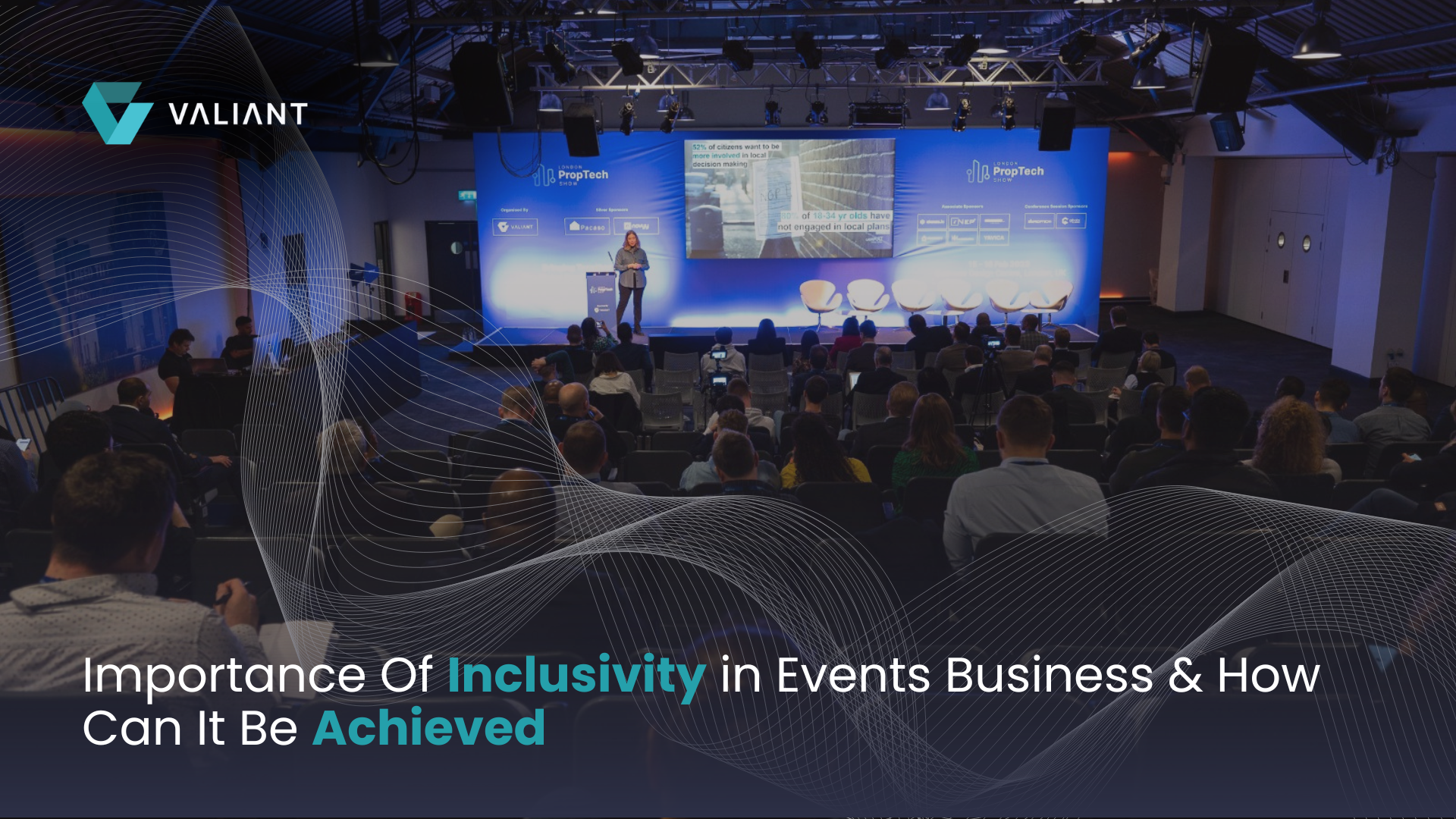The essence of the event industry is that it serves the whole world. Conferences, seminars, and expos have the ability to bring together diverse groups of people, support professional development, and empower voices from various industries. Having said that, diversity, equality, and inclusion (DE&I) have become critical components of an effective event strategy. Diversity, equity, and inclusion in events imply establishing an environment that is welcoming to all attendees, regardless of age, race, gender, ethnicity, or abilities. An event cannot be deemed a success unless every guest is able to participate freely. As we continue to make progress towards diversity and inclusion in the wider sphere of society, the events industry must follow these as a protocol. Celebrating the diverse spectrum of society and ensuring equal access and participation for all attendees is crucial in event management. In this light, here are some simple ways to ensure inclusivity at events.
Making The Venue Accessible
One of the integral parts of achieving disability inclusion and accessibility at events is ensuring that the venue is accessible to all. As an event planner, it is crucial to consider the movement capacity of the venue. This includes ensuring that lifts and ample ramps for step-free access are available, there is enough space for wheelchair users to move freely around the venue, and signposts are easy to read in order to navigate the venue. It is also essential to ensure that it is straightforward to get to the venue, with clear directions and accessible entrances. Additionally, events can be overwhelming for people with sensory difficulties. Creating designated quiet spaces within the venue allows attendees to take a break from the potentially overwhelming main event area.
Including a Diverse Range of Speakers
In order to ensure that an event is inclusive, it is essential to select guest speakers that represent a diverse range of nationalities, religions, socio-economic statuses, gender, and more. This may involve researching for potential speakers, reaching out to individuals or organisations that are known for promoting diversity and inclusivity, and actively seeking out feedback from attendees and community members to ensure that the event is representative of their needs and interests. Event organisers should make a conscious effort to seek out speakers from a range of backgrounds and experiences. In addition to selecting a diverse range of speakers, event organisers should also consider how they can promote inclusivity through the content of the event.
Promoting Inclusive Language
Inclusivity in events can also be achieved in the finer details, such as the language used by event speakers. Inclusive language also means being mindful of cultural sensitivity and opting for inclusive cultural depictions. This involves avoiding language that may be offensive or exclusionary to certain groups of people and instead, using language that is inclusive and respectful of everyone in attendance. By using inclusive language, event organisers can create an atmosphere that is welcoming and respectful of everyone in attendance, regardless of their background or experiences.
Leveraging Partnerships
Building partnerships can be an effective way to create better commitment and increase the reach of an event. By partnering with organisations and businesses that align with the cause, event organisers can tap into existing networks and resources to help promote and support the event. When seeking partnerships, it is important to do in-depth research about potential entities to ensure that they share the same values and goals as the event. This may involve reaching out to organisations that actively support, sponsor, and participate in anti-racist and equal rights initiatives. Partnering with organisations that represent underrepresented communities can also help empower the event to be more inclusive and to more effectively reach these communities.
Promoting inclusivity at events requires a conscious effort from event planners. By making the venue accessible, including a diverse range of speakers, and promoting inclusive language, we can ensure equal access and participation for all attendees. Creating a welcoming environment for all attendees will not only help to promote inclusiveness in the events industry but also make for a more enjoyable and successful event.


